
 |
FRANKLY SPEAKING
Reverse social alienation in the ValleyKashmir can't be delinked from India's civilisational bonds
Indian leaders need not be goody-goody and speak out in one voice as to how India is a secular nation, Kashmir included. India is far different from the rest of the world. All that the Modi-Shah duo should do is to work hard for ensuring a genuine political process on the ground, revive the basic conditions of democracy and hold talks with mainstream Kashmiri leaders.
The silence by the human rights activists then was highly disturbing for most Indians. We have actually paid a heavy price for our policy of appeasement of the Valley Muslims and vested interests. Historically speaking, the US and Britain wanted a foothold in Kashmir so as to keep a watch on China and the Soviet Union. President Donald Trump has brought Kashmir into the vortex of geopolitics, keeping in view Afghanistan. Is Donald Trump playing a “hidden game” or trying to play some sort of a diplomatic coup against India? We have seen the US President’s position in a wider context of the changing Afghan situation. He apparently wants to keep Imran Khan in good humour in view of the complexities of the Afghan situation. In this context, the world ought to constantly remember that unlike Pakistan, India refused to become a theocratic state as it would have gone against the fundamentals of our civilization. And we have been bold enough to state the precise obligations that we, as a society and as individuals, have to carry forward our civilisational values in the interests of all citizens, irrespective of caste, creed, community and religions. It is regrettable that Prime Minister Narendra Modi has not been able to make US President Donald Trump understand the country’s rich civilizational values and heritage. Otherwise, I feel, he would not have repeated multiple times in recent days that he “is willing to mediate on the Kashmir issue if both India and Pakistan want him to”. Mediate for what and for what purpose? Does he want to bend over backwards to keep Imran Khan’s hopes alive? New Delhi cannot be part of the US Presidents’ half-baked ideas and concepts. I must state honestly that the very name, Kashmir, evokes powerful images and emotions and stirs up deep-rooted memories of a past when Kashmir was one of the major nurseries of Hindu civilization.
I doubt Donald Trump’s credentials as a “mediator”. New Delhi has rejected all such offers and rightly so. Prime Minister Modi has said he would “not like to bother any country” over the Kashmir issue, even though Donald Trump and Pak Prime Minister Imran Khan have been quite vocal about it. I wonder why the US President has been candid about it, though he knows India’s firm position in this regard.
The moot question is: is Donald Trump playing a “hidden game or trying to play some sort of a diplomatic coup against India? I won’t be surprised about it since we have seen the US President’s position in a wider context of the changing Afghan situation. He apparently wants to keep Imran Khan in good humour in view of the complexities of the Afghan situation. I wish that Prime Minister Modi should not have allowed himself to be carried away by Donald Trump’s sweet talks. He needs to critically look at the country’s overall strategic interests and work out a comprehensive approach in conducting the country’s foreign policy. Historically speaking, the US and Britain wanted a foothold in Kashmir so as to keep a watch on China and the Soviet Union. President Donald Trump has brought Kashmir into the vortex of geopolitics, keeping in view Afghanistan.
Pakistan is the only defiant Islamist country in the world. It is inimical to everything that India stands for. The spirit of the Indian civilization has given greater assurance of justice and fairplay to all its citizens. The Kashmiris need to take full advantage of this. Do the Kashmiri Muslims consider themselves “special” because they are Muslims? If so, what about the 140 and odd-million Muslims in the rest of the country? Professor Saifuddin Soz and other Kashmiri leaders of his ilk are opposed to the integration of the Valley with the rest of the country. Asghar Ali Engineer, a Bohra Muslim, believes that if Kashmir goes to Pakistan as its leaders have been craving for, then it may mean the end of secular nationalism in India (Secular Crown on Fire: The Kashmir Problem). He has a valid point, though it is difficult to say that the basic outlook of the Hindus, their rich tradition of tolerance will change. We have surely a large Islamic and Christian legacy. We cannot disown it. At the same time, it needs to be kept in mind that minority fundamentalism is an affront to the Indian heritage, to our pride in our civilisational values.
Prime Minister Narendra Modi says that it would not even take “even four months” to restore normalcy in J&K. He is apparently more realistic than his powerful colleague Home Minister Amit Shah. The Home Minister tends to float in the air rather than talk realistically based on hard information from the ground. It is, of course, for the BJP’s ruling class to decide how it wishes to tackle complex issues of Kashmir after the abrogation of Article 370 and detention of mainstream Kashmiri leaders. One thing is clear : they are not going to give up their “right to speak freely and fearlessly. I believe that the situation in the Valley might have been different had some of the key leaders were handled differently before revoking Jammu and Kashmir’s special status. What is worrying me the way global voices are turning against India on curbing of human rights of the people of J&K. At stake is India’s global image ! Of course, the process of easing of “freedom” has already begun. As many as 72 mobile and internet communications were blocked in the Kashmir Valley post- paid mobile services were restored on Monday (October 14). There are 40 lakh post-paid mobiles in Kashmir. Around 30 lakh prepaid mobile phones connections are yet to be restored. Internet connections will continue to remain suspended for now. However, New Delhi has still a long way to go before the Valley sees all-round “normalcy.” It is for PM Modi to think big and act big instead of seeing Kashmir in a narrow perspective of the BJP’s political calculations. In fact, the biggest challenge before PM Modi and Amit Shah is to reverse the growing social alienation in the Valley. This may not be realized by them. But my feedback is based on ground realities. And ground realities show us the mirror of truth. |
|


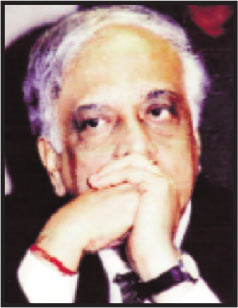 Hari Jaisingh
Hari Jaisingh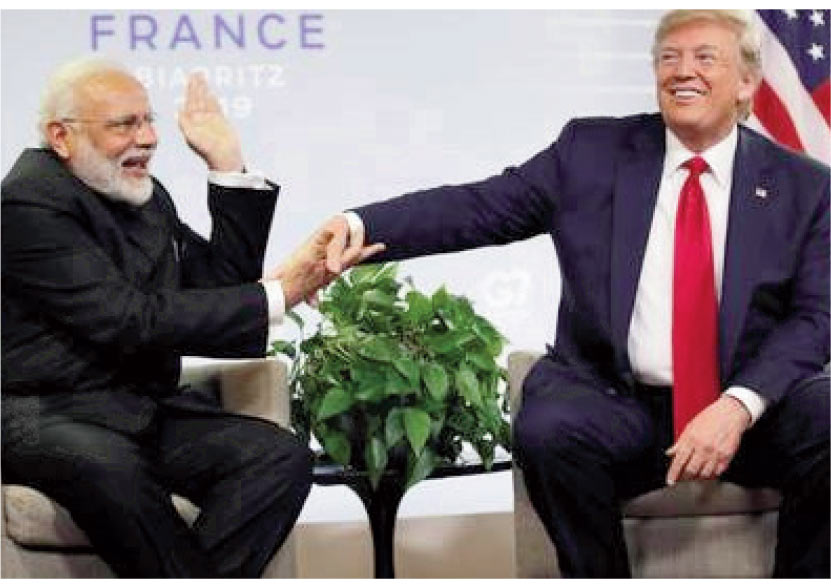
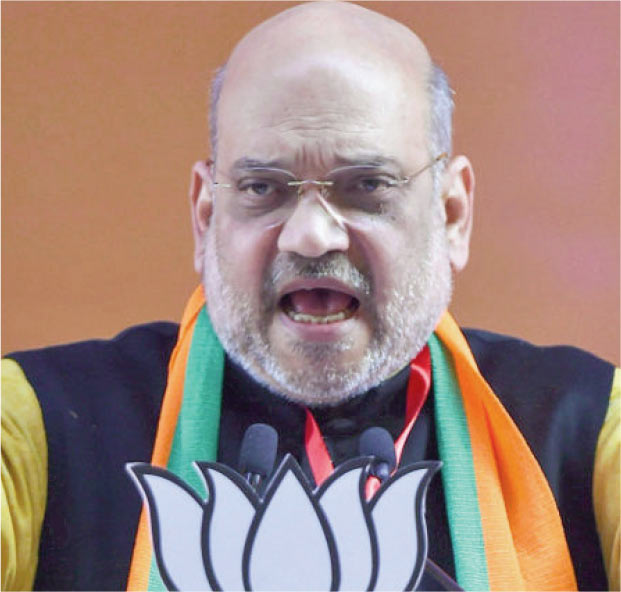 Amit Shah
Amit Shah
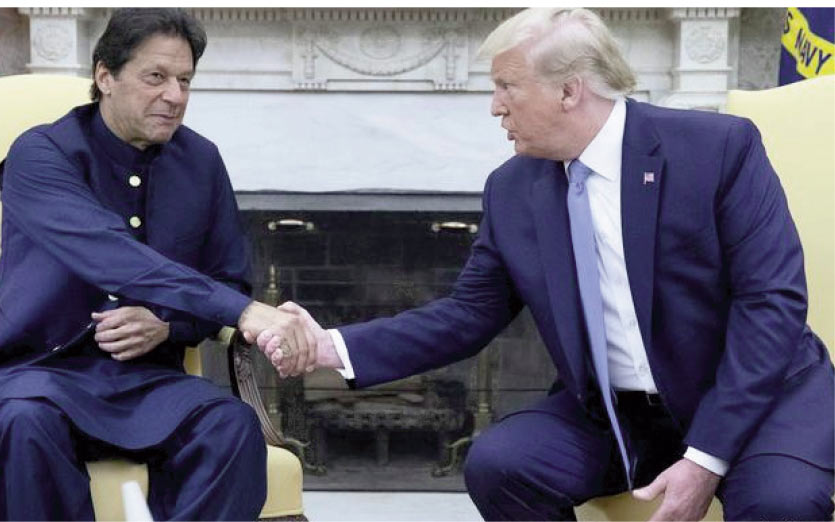 Imran Khan's White House meeting with US President
Imran Khan's White House meeting with US President 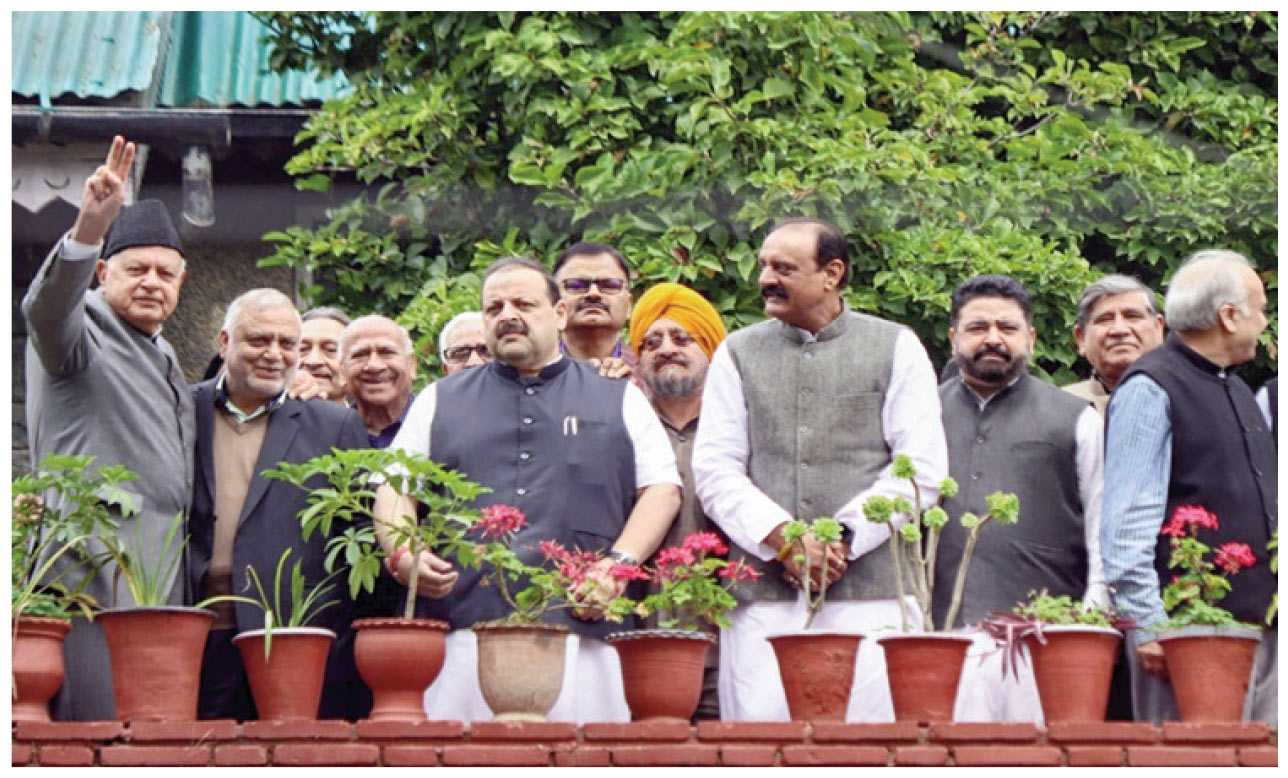 The National Conference (NC) delegation met Farooq Abdullah, Omar
The National Conference (NC) delegation met Farooq Abdullah, Omar 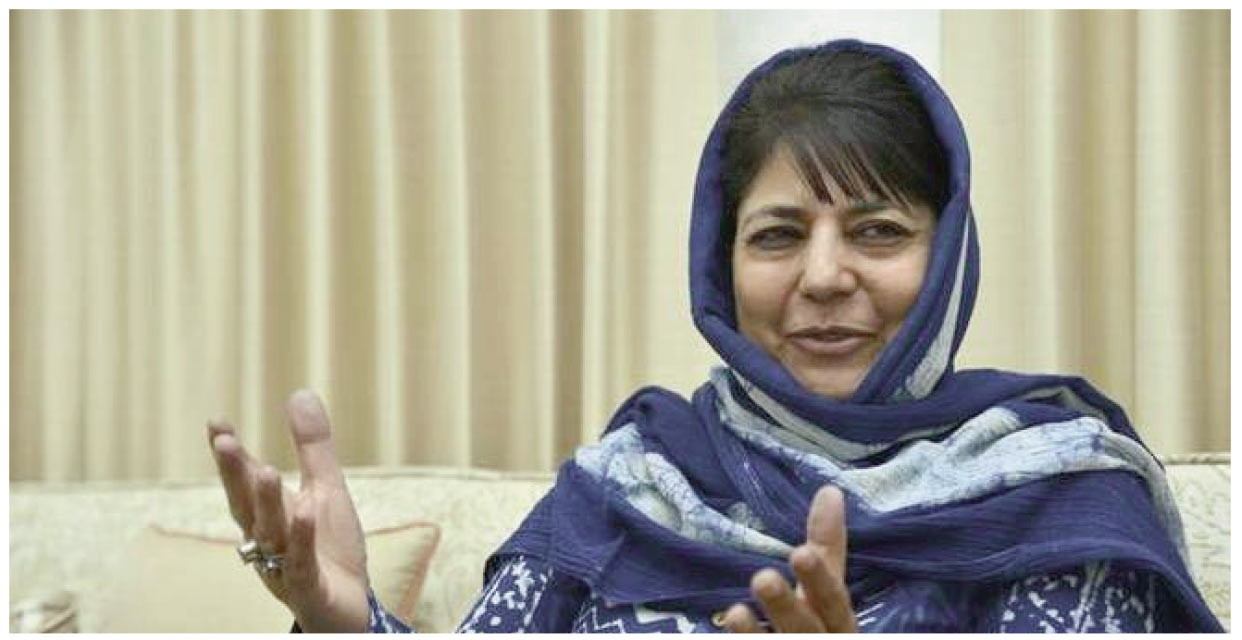 Mehbooba Mufti asked the PDP team to defer meeting with her
Mehbooba Mufti asked the PDP team to defer meeting with her
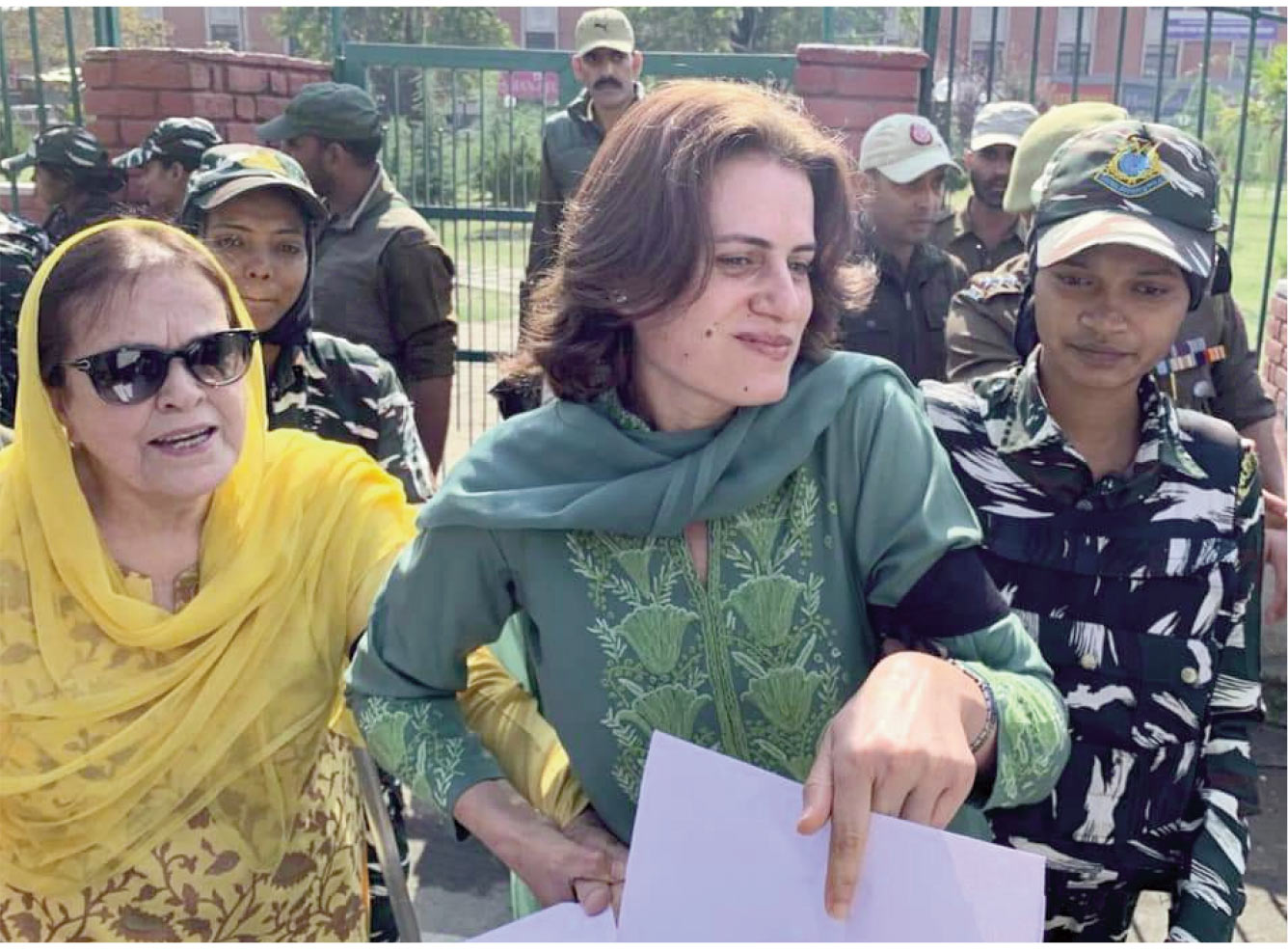 Several women protesters, including Farooq Abdullah's daughter Safia
Several women protesters, including Farooq Abdullah's daughter Safia